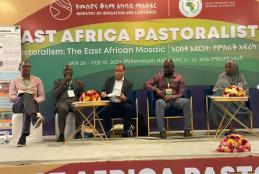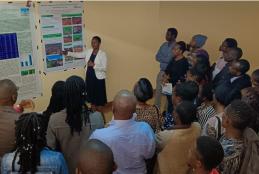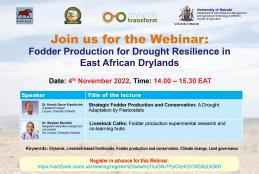DRYLANDS TRANSFORM AT EAST AFRICA PASTORALIST EXPO IN ADDIS ABABA
The SLU-led Dryland Transform Research Project organised a panel discussion titled ‘Ecosystem restoration for feed, food and nutrition resilience in East African drylands’, during the East Africa Pastoralist Expo in Addis Ababa, Ethiopia 26th Jan – 2nd Feb 2024. Dryland Transform was represented by the Kenya and Uganda Country Co-ordinators, Dr. Stephen Mureithi and Prof. Denis Mpairwe, respectively.



